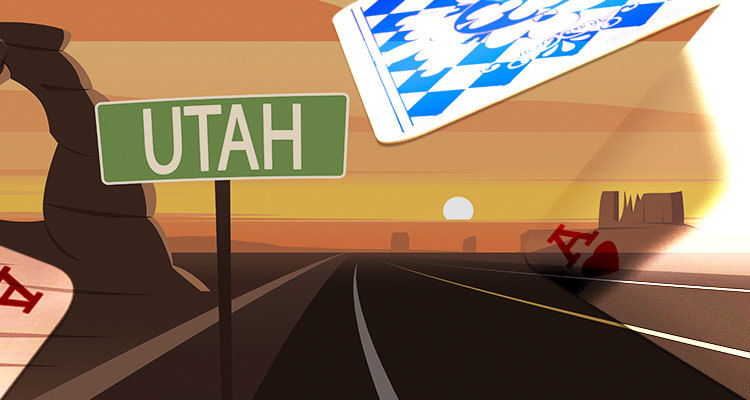In Utah, lawmakers have passed a bill designed to rid the state of “fringe gambling,” an activity that the sponsors of the measure have compared to “a cancer that is spreading through many communities.”
Described as “any gambling, lottery or gaming device that is given by a business in exchange for money,” the slot machine-like devices have reportedly cropped up at convenience stores and various other neighborhood shops throughout the state, despite its [the state] strict constitutional prohibitions on games of chance and lotteries, according to recent reports from The Salt Lake Tribune.
Overwhelming support:
Drafted last month by Sen. Karen Mayne, D-West Valley City, SB214 attempts to define what is considered a fringe gambling machine, clarify the types of machines that are legal, increase criminal penalties for owners of gambling machines, and enable users of the machines to request twice the damages for monies lost to the machine’s owner.

The bill skated (63 to 8) through the Utah House on Wednesday, while the Senate ushered it through a final procedural vote in the early morning hours on Thursday, which was the last day of the state’s legislative session.
At a Capitol news conference in February, Senator Mayne was quoted by the news agency as saying…
“It’s a cancer that needs to be out of the state of Utah. If they want this kind of practice, it needs to be elsewhere because it’s bringing down all our communities, and bringing drug use, more violence, all those kinds of things.
“These are slot machines that are in mini-marts, laundromats, beauty salons, and they’re more aggressive every single day.”
Lack of oversight:
According to the newspaper, the machines are for the most part unregulated due to the fact that gambling is prohibited by the state’s constitution, so there are no rules in place within the cities that address specific gaming varieties.
James Russell, who works as an investigator for the Utah Attorney General’s Office, said…
“The individuals and companies who are proliferating these machines all around Utah are doing so with no oversight, and no regard for the impact it has on the communities where they’re placing these machines.”
Vulnerable populations:

Among the issues with the machines, said Russell, is that they are often located in “places where they go to take advantage of those who are the least advantaged,” such as lower-income areas, independently-owned convenient stores, ethnic markets and gas stations. Other lawmakers claim that these establishments have attracted illegal activity, such as prostitution and drug dealing.
Skirting taxes is another issue. Because the machines are largely unregulated, the state is not able to collect sales tax revenue, according to the news agency.
Previous attempt:
In the 2019 session, Rep. Mike McKell and Sen. Todd Weiler sponsored HB23, which aimed to do away with a loophole in Utah gambling laws that continue to allow electronic sweepstake machines to make their way into conveniences stores throughout the Salt Lake Valley. However, due to what Senator Mayne attributes to “smart lawyers and experienced lobbyists,” it was apparently not enough to keep the gambling businesses out of the western US state.
Existing laws:
According to the news agency, the bill’s focus is on machines that take and distribute monies. It reportedly doesn’t alter the state’s existing laws that apply to bingo, valid promotional activities, or any other such activity that does not involve a machine.
The Utah Constitution, meanwhile states that the…
“Legislature shall not authorize any game of chance, lottery or gift enterprise under any pretense or for any purpose.”



